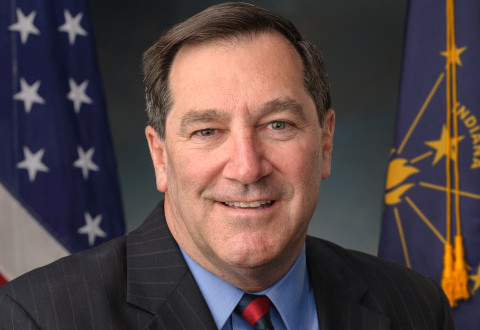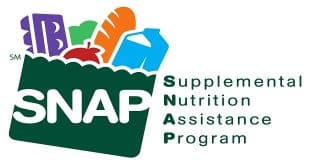Washington, D.C. – This afternoon, U.S. Senator Joe Donnelly, a member of the Senate Ag Committee, helped the Senate pass the 2018 Farm Bill in a broad bipartisan vote of 86-11. The bill includes a number of Donnelly–written and –supported provisions. Donnelly spoke on the Senate floor late yesterday to discuss how the bill would support Hoosier farmers, families, and rural communities. Donnelly helped craft and voted for the bill in the Ag Committee earlier this month.
Donnelly said, following passage of the bill, “I’m proud to have brought the wisdom from Hoosier farmers to this bipartisan bill. Indiana’s farmers are having to navigate significant challenges – from depressed commodity prices to chaotic trade markets and uncertain federal policies from WOTUS to the RFS. I am proud that we’ve been able to pass a strong, bipartisan farm bill in the Senate. It’s a step towards providing some much need stability for our farmers. Now it’s time to get to work reconciling our differences with the House so we can get the bill to the president’s desk.”
To watch Senator Donnelly’s speech on the Senate floor yesterday, click here.
Randy Kron, President of the Indiana Farm Bureau, said, “Indiana’s farmers rely on programs in the farm bill, such as crop insurance and the commodity titles, to plan for the future of their operations with some level of certainty. As farmers face trade tariff concerns and low commodity prices, the passage of the Senate’s version of the farm bill is welcome news. I appreciate Sen. Donnelly for the effort he put into ensuring that this critical piece of legislation passed the Senate floor.”
Phil Ramsey, Chairman of Membership and Policy for the Indiana Soybean Alliance, and a corn and soybean farmer from Shelbyville, said, “After a spring that has challenged our farms from nearly every angle, Hoosiers and rural Americans need a Farm Bill now more than ever. With farm income down more than 40 percent from just 4 years ago, input costs skyrocketing, the ethanol industry constantly under attack, and disrupted trade relations sharply driving down prices, the stability and safety net provided by the Farm Bill are critical to farmers and ranchers across the nation. Indiana soybean farmers truly appreciate the invaluable work Senator Donnelly and the rest of the Senate Ag Committee have done to hear and address the concerns of producers. Their efforts to get this crucial piece of legislation successfully completed are critical and applauded by Hoosier farmers.”
Emily Weikert Bryant, Executive Director of Feeding Indiana’s Hungry, said, “It’s important that the Farm Bill help fight food insecurity, and we appreciate Senator Donnelly’s bipartisan work in the Senate farm bill to ensure that Hoosier families are able to access food assistance, especially for his successful advocacy for an increase in TEFAP funding, which is vital to the efforts of local hunger-relief agencies. We will continue advocating for a final farm bill that supports Hoosier families.”
Don Kelso, Executive Director, Indiana Rural Health Association, said, “Senator Donnelly’s three rural opioids provisions within the Senate Farm Bill are timely and insightful. These measures would provide vital funding for facilities and related treatment for Substance Use Disorder. The uniqueness of the rural communities lend itself to receive timely and effective education and treatment via a Telemedicine solution.”
Some of the Hoosier priorities and Donnelly provisions included in the bill:
- Fighting the Opioid Epidemic: This bill includes three Donnelly-written provisions that would combat the opioid epidemic by targeting telemedicine and community facility program investments for substance abuse treatment and by investing in prevention and education programs. These provisions were developed from Donnelly’s bipartisan rural opioids package introduced in 2017 with Ag Committee Chairman Roberts (R-KS), then-Senator Luther Strange (R-AL), and with Senator John Hoeven (R-ND).
- Promoting Impactful, Voluntary Conservation: The bill would ensure farmers are provided with the tools they need to be good stewards of the environment. It would eliminate potential disincentives for voluntary conservation practices like cover crops and would support soil health improvement programs. It would allow states to increase cost-sharing for the most impactful conservations practices. Donnelly heard about the importance of cover crops and conservation programs in several listening session stops, including in 2017 in Knox County and in March 2018 with conservationists and sportsmen in Montgomery County.
- Ensuring Full Planting Flexibility: The bill would retain full planting flexibility for farmers who want to plant fruits and vegetables, ensuring farmers can diversify their farms without worrying about losing access to commodity support programs in the future. This builds on a bipartisan bill Donnelly introduced with Senator Todd Young in December 2017, on Donnelly’s work in the 2014 and 2008 farm bills, and on input from his listening session at the Red Gold Tomato Farm in August 2017 in Grant County.
- Developing New Markets: As Hoosier farmers work to navigate challenging international markets, the bill would increase export opportunities for Hoosier farmers through two export promotion programs, the Foreign Market Development Program and the Market Assistance Program building on Donnelly’s bipartisan legislation with Senators Joni Ernst (R-IA), Angus King (I-ME), and Susan Collins (R-ME).
- Addressing Food Insecurity: The bill would strengthen oversight of the SNAP program and help fight food insecurity by reforming food assistance programs, while protecting access to benefits and maintaining the integrity of the programs. It would make it easier for seniors to access food assistance by reducing burdensome paperwork and increases funding for The Emergency Food Assistance Program (TEFAP), which was based on an amendment introduced by Donnelly on the Senate floor. In November 2017, Donnelly toured the Food Finders Food Bank Inc. in Lafayette and met with representatives from statewide anti-hunger groups to bring their thoughts to the bill.
- Investing in the Future of Agriculture: The bill includes a Donnelly provision that would reauthorize and reorganize the New Era Rural Technology Program to help community colleges fund efforts to develop a workforce trained in precision agriculture management.
- Supporting Rural Communities: The bill would help rural communities attract investment and growth by improving the delivery of high-speed internet and investing in waste- and drinking-water by infrastructure to ensure water systems are providing clean and reliable water.
Earlier this month, Donnelly outlined his priorities for the Farm Bill in a letter to Committee Chairman Pat Roberts (R-KS) and Ranking Member Debbie Stabenow (D-MI). To read the full letter click here.
Through his work on the Senate Agriculture Committee, Donnelly has worked tirelessly to advocate for Hoosier farmers and rural communities. As part of the previous Farm Bill, Donnelly successfully pushed several measures important to Indiana that were signed into law in 2014. The Farm Bill is typically reauthorized every five years, and the current bill expires in September 2018. A final version must now be negotiated between the Senate and the House of Representatives, who each passed different versions of the bill.






